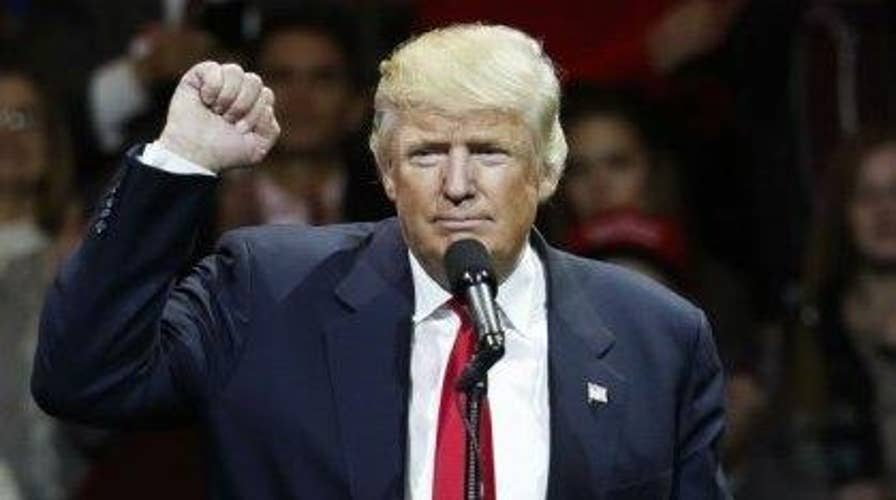Trump team on Taiwan: It was 'just a phone call'
Bryan Llenas reports on the latest developments within the Trump transition
President-elect Donald Trump defended his call to the Taiwanese president in a series of tweets Sunday, a breach of diplomatic protocol as the U.S. shifted recognition from Taiwan to China nearly 40 years ago.
"Did China ask us if it was OK to carry out a number of actions such as build up disputed islands in the South China Sea or take economic measures hurtful to the United States," Trump tweeted.
Taiwan President Tsai Ing-Wen called Trump Friday to congratulate him on the election in a call set up by an American third party. Taiwan's official Central News Agency, citing anonymous sources on Saturday, said that Edwin Feulner, founder of the Washington-based Heritage Foundation, was a "crucial figure" in setting up communication channels between the sides.
The call seemingly irked China, prompting Beijing to send a complaint to the U.S. government. Foreign Minister Wang Yi said Saturday that the contact was "just a small trick by Taiwan" that he believed would not change U.S. policy toward China, according to Hong Kong's Phoenix TV.
"The one-China policy is the cornerstone of the healthy development of China-U.S. relations and we hope this political foundation will not be interfered with or damaged," Wang was quoted as saying. Chinese officials said they lodged a complaint with the U.S. and reiterated a commitment to seeking "reunification" with the island, which they consider a renegade province.
Trump’s top aides defended the call earlier Sunday.
Senior adviser KellyAnne Conway said on “Fox News Sunday” that it was “just a phone call.”
“President-elect Trump is not out there making policy or policy prescriptions,” she added.
Conway said Trump is “fully aware of the One China policy” and that he is routinely briefed by foreign policy and military experts, amid reports he doesn’t take daily State Department briefings.
Vice President-elect Mike Pence told NBC’s “Meet the Press” that the call shouldn’t necessarily be considered a shift in U.S. policy. He shrugged off the attention to the incident as media hype.
"It was a courtesy call," Pence added.
Over the decades, the status of Taiwan has been one of the most sensitive issues in U.S.-China relations. China regards Taiwan as part of its territory to be retaken by force, if necessary, if it seeks independence. It would regard any recognition of a Taiwanese leader as a head of state as unacceptable.
Taiwan split from the Chinese mainland in 1949. The U.S. policy acknowledges the Chinese view over sovereignty, but considers Taiwan's status as unsettled.
Ned Price, a spokesman for the White House National Security Council, said Trump's conversation does not signal any change to long-standing U.S. policy on cross-strait issues. Yet the phone conversation prompted mixed reactions.
Taiwanese newspapers ran banner headlines Sunday about the call, and two noted on their front pages Sunday that Trump referred to Tsai as "the president of Taiwan," a formulation that would be a huge shift in American policy and infuriate China.
The Taiwanese presidential office said Trump and Tsai discussed issues affecting Asia and the future of U.S. relations with Taiwan. Tsai also told Trump that she hoped the U.S. would support Taiwan in its participation in international affairs, the office said, in an apparent reference to China's efforts to isolate Taiwan from global institutions such as the United Nations.
Taiwan's presidential office spokesman, Alex Huang, said separately that Taiwan's relations with China and "healthy" Taiwan-U.S. relations can proceed in parallel. "There is no conflict" in that, he said.
China's foreign ministry said Beijing lodged "solemn representations" with the U.S. over the call.
"It must be pointed out that there is only one China in the world and Taiwan is an inseparable part of Chinese territory," Geng Shuang, a ministry spokesman, said in a statement. "The government of the People's Republic of China is the sole legitimate government representing China."
The Associated Press contributed to this report.




